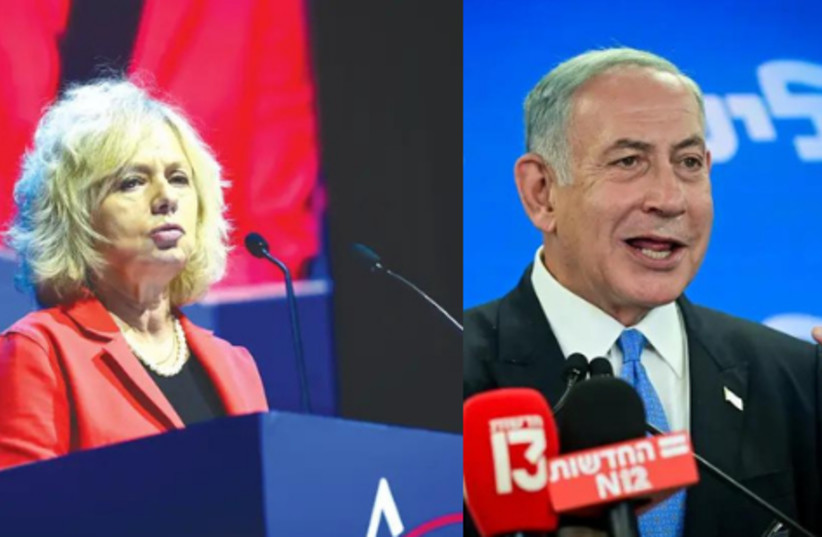Israeli Prime Minister Benjamin Netanyahu should not be placed in contempt of court, Attorney-General Gali Baharav-Miara said in response to a petition against the Likud leader on Monday, but said that Netanyahu was still required to abide by the conflict of interest agreement.
Baharav-Miara said that declaring a person in contempt of court required legal conditions that were not met by the situation, despite a March 24 warning by the attorney-general that his March 23 announcement of involvement in Israel's judicial reform was in violation of his conflict of interest agreement.
The Movement for Quality Government in Israel, which filed the petition on March 26, said that it was disappointed with the attorney-general's "evasive" response.
"If it looks, smells and sounds like a violation of the ruling – it is a violation punishable by contempt of court in a way that requires the imposition of sanctions on the prime minister," said MQG.
Did the attorney-general walk back on her position?
MQG said that the prime minister was not above the law and said that the attorney-general had walked back her position on Netanyahu's conflict of interest violations.

Baharav-Miara responded to MQG, saying that the court had "already determined that the conflict of interest in which the prime minister finds himself is unusual in its nature and intensity."
The attorney-general reaffirmed her position that the judicial reform would create fundamental changes in the justice system and could benefit him in his ongoing corruption trials.
Netanyahu had responded to the petition on Sunday, his legal team noting that it could be set so that judges appointed after the reform would not be involved in the prime minister's trials.
The Netanyahu legal team had also argued that the attorney-general's interpretations of the conflict of interest agreement organized by her predecessor were far broader than had been initially intended. Baharav-Miara on Monday invited Netanyahu to present his disagreements with her implementation of the restrictions before the court "within the framework of an appropriate procedure."
Netanyahu's conflict of interest agreement was organized in 2020 to condition his forming of a government, as there were concerns that some prime ministerial powers could be used or could give the impression of use to influence the premier’s three corruption trials.
The agreement holds that Netanyahu is restricted from involving himself with appointments of legal and law enforcement officials.
A key provision of the judicial reform would see the changing of the composition and procedure of the Judicial Selection Committee.
If Netanyahu were found in contempt of court, the High Court could impose fines or one month of jail time as corrective measures to ensure the politician keep to the agreement. The measures could escalate with repeated offenses.
